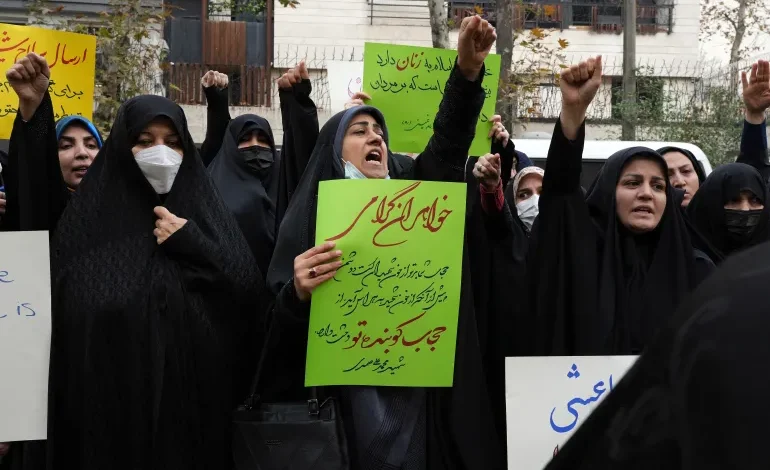Iran Disperses Protest Calling for Stricter Enforcement of Dress Code Rules

In a rare move, Iranian authorities dispersed a demonstration in Tehran last Friday evening, comprised of individuals calling for stricter enforcement of the country’s mandatory dress code laws, as per Al Jazeera.
The protestors, primarily women dressed in full-body black chadors, had been camped outside of parliament for nearly 50 days.
The group was decrying what they perceived as lax enforcement of the mandatory hijab, viewing it as an abandonment of “Islamic values.” The dispersal occurred following the conclusion of state-organized Quds Day rallies in support of the Palestinian cause.
Since the 1979 revolution, Iranian law has mandated strict dress codes for both women and men, including the wearing of a veil covering hair for women. Violations can result in imprisonment, flogging, or financial penalties.
For decades, the Iranian authorities enforced the mandatory hijab through patrols by the “morality police,” known as “Gasht-e Ershad” or Islamic guidance patrol. This force would detain individuals for “undermining public decency” and subject them to “re-education” or court-ordered punishments.
The death of 22-year-old Mahsa Amini in September 2022, who died in police custody after being arrested for alleged non-compliance with hijab laws, sparked widespread protests across Iran. Hundreds of protesters and security forces were killed during the unrest.
While the morality police were briefly suspended in late 2022, they soon returned to the streets, and numerous individuals have been arrested or faced legal action for dress code violations. This has included ordinary citizens, journalists, actresses, and businesses whose customers were deemed in violation of the law.
Faced with increasing hijab-related offenses, particularly in Tehran, Iranian authorities have attempted to implement stricter legislation. In September 2023, the conservative-dominated parliament passed a new hijab bill under the administration of the late President Ebrahim Raisi, defining harsher punishments, particularly increased financial penalties. The Guardian Council, the country’s constitutional watchdog, approved the bill in September 2024.
Despite the new legislation, President Masoud Pezeshkian, who has pledged to enforce mandatory hijab through non-confrontational methods like “education,” has stated that his government would be incapable of enforcing the “impractical” bill.









The latest news in your social feeds
Subscribe to our social media platforms to stay tuned